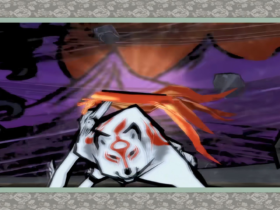Video game adaptions still bring a mixed bag of expectations from potential viewers at first glance, and Secret Level has quite a lot of eyes on it for daring to be a full gaming anthology. It features 15 episodes that tell a story in several iconic worlds fans should be familiar with. These vignettes starring important IPs like Warhammer 40,000 and Armored Core threaten to bring regular viewers into these worlds and dare them to see more by playing the games themselves.
Secret Level may boast an impressive roster of adaptive titles, but the anthology isn’t here for a round of applause exactly. In a recent Game Rant interview, executive producers Tim Miller and Dave Wilson stated that they aren’t aiming for praise or for any “wow” factor. Instead, the desire is to make viewers feel things, be it anything positive or negative, just like any other prominent art form aims to do. Secret Level aims to be a love letter to gaming and its subcultures as a whole, and that means making sure it strikes numerous heartstrings for fans. And no one knows that better than fans.

Related
How Secret Level Reinforces the Role of Indies in the Game Industry
Secret Level may only have two episodes based on indie games under its belt, but thankfully, they’re as handled with care as the rest of the lineup.
Secret Level’s Episodes Shine Thanks to Care and Understanding of the Source Material
Why Many of Secret Level’s Shorts Can Stand on Their Own
The number of iconic gaming IPs in Secret Level is one of its biggest selling points to viewers. However, the respect behind every game’s source material speaks for itself, with every short featuring a side story or an important piece of the series’ lore. The rise of Mega Man is a tale that’s been adapted in a unique way from what came before, and the story of Xan from Unreal Tournament is something fans had never seen before, even if it was implied over the years. Making an entire anthology out of iconic moments in video games, though, wouldn’t sit well with a general audience, as other adaptations have shown over the years. Thanks to their experience in both film direction and video game development, Secret Level‘s executive producers were well aware of this fact.
One of the important tenets of Secret Level is to tell a story that’s accessible to those who haven’t even played it. As previously mentioned, this is a bar that many video game adaptations fail to clear. The anthology has found a way to clear this bar by making all of its stories specifically standalone, with the Warhammer 40,000 episode serving as a great example of not only how this method can kill two birds with one stone this way, but it’s a crown jewel of the entire season for how it manages to pull in both audiences. While simple as to how, Secret Level‘s Warhammer episode serves as a sequel to Space Marines 2. However, a new character serves as an audience surrogate to bring them into the world without much trouble.
Secret Level Features a Spectrum of Emotions for a Reason
Since Secret Level aimed to tell a story that could bring in both players and viewers alike, it was important to make sure the heart of the story came through beyond the action. These tales also needed to thematically match the IP in question, and series creator Tim Miller told Game Rant that to make sure of that, they tried to make sure that the original scripts for these shorts were written by those who knew truly knew the games.
Most of it came from the type of game it was. We tried to cast authors and writers who had an affinity for that game. We built a big creative guide and found writers to do pitches because we really wanted a broad series of points of view instead of just Dave and I sitting in a room coming up with the same tired ideas over and over.
Many of the people Miller and Wilson asked to provide these starting scripts also worked on their previous anthology Love, Death and Robots. With the help of creative guides made by the executive producers, these authors could easily get a feel for each episode’s anthological purpose and work from there. The episodes speak for themselves by showing this dedication and familiarity to each franchise.
Source link













Leave a Reply